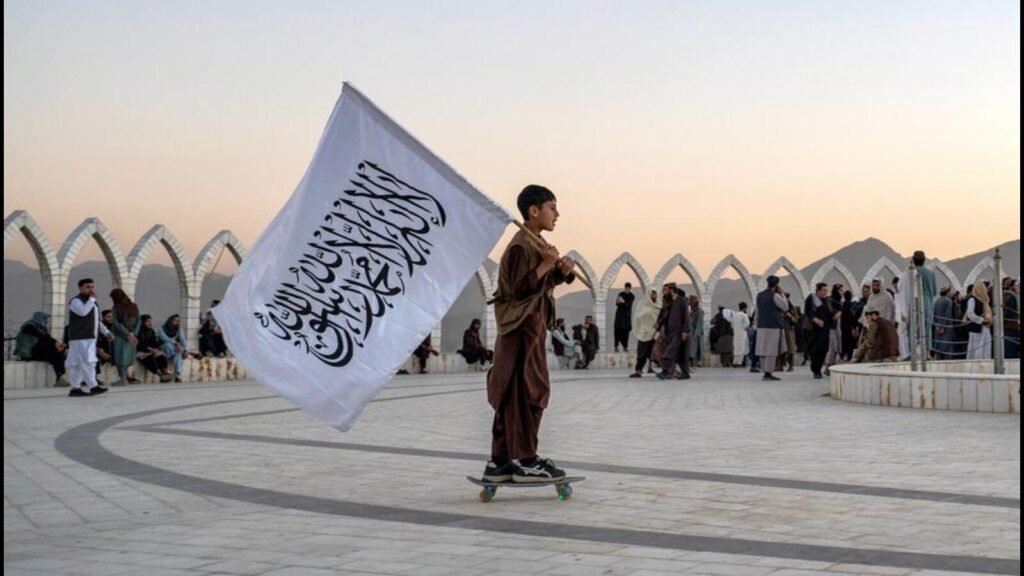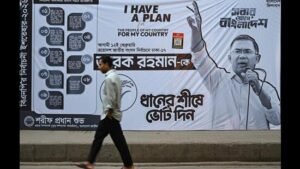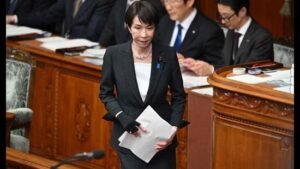
The photograph of the Taliban foreign minister Amir Khan Muttaqi sitting under an old portrait of the Bamiyan Buddhas at the Afghanistan Embassy in Delhi — an iconic heritage site his group destroyed in 2001 on the orders of Mullah Omar — captured all the contradictions and cultural challenges that India’s dramatic reset with the Taliban will entail.

From lyricist Javed Akhtar to parliamentarian Mahua Moitra, several Indians have questioned or criticized this engagement. At an intuitive level, the angst is understandable. Since 2021, the Taliban have banned girls from secondary schools and women from universities. Women are completely excluded from formal political life. And in some provinces, women are forbidden to be treated by male doctors — UN Women warns that maternal mortality could increase by 50%.
The Taliban delegation made its own case worse by seeming to bring some of these Neanderthal policies to Indian soil when no women journalists were invited to the first press conference Muttaqi held. While all kinds of theories were offered to initially explain this, including that no one could dictate what the Taliban did within the compound of its own embassy; The fierce backlash forced the Taliban to hold a second press conference at the embassy and invite female reporters as well.
This in itself is instructive.
It is better for India to be a possible moderating influence than to be of no influence as a result of the cold freeze in relations.
That said, it is important to understand India’s try with the Taliban in strategic terms, not ideological ones. The unraveling of trust in the relations with the US should be illustrative of the limitations or even redundancy of shared values diplomacy in today’s turbulent times.
Foreign policy must, by definition, be guided solely by India’s national interests. Add to this a series of cataclysmic geo-political factors — India’s military conflict with Pakistan, China’s long-term patronage of Pakistan now combined with US president Donald Trump’s distinct tilt towards Islamabad, and trouble in the neighbourhood, in Bangladesh, Nepal and Myanmar.
The flare-up of a border war between Pakistan and Afghanistan — with Pakistan bombing targets inside Kabul just as Muttaqi touched down in Delhi — reveals how irked the powers that be in Islamabad are. In Muttaqi’s visit to India, the message from the Taliban to Pakistan is that they cannot, and will not be, treated like a puppet regime.
India’s decision to reset relations is a message not just to Pakistan about extending strategic depth in Afghanistan, but also a message to the Trump administration that has been aggressively eyeing control of the Bagram. base in Afghanistan. Muttaqi’s visit to the Deoband seminary in Uttar Pradesh was especially significant in challenging Pakistan’s assumptions about Muslims and nationhood.
That said, the Taliban is not a monolith. And India should not forget that when Kabul first fell to the Taliban, Pakistan’s Inter-Services Intelligence (ISI) chief was among the first public figures to be spotted on the ground. Entities like the Haqqani network operating out of Afghanistan, but with well-established links to ISI must not be glossed over as well. Those of us of a certain vintage remember the hijacking of IC814, diverted to Kandahar by Pakistan-backed hijackers in exchange for the release of terrorists, including Masood Azhar.
Today’s Taliban may pose no direct security threat to India in the way Pakistan does — a point made repeatedly by veteran diplomats. And it’s a point well taken.
But if this is genuinely about re-establishing India’s connection with Afghanistan, we will need to look at relations beyond the Pakistan prism. We will need to reopen our doors on visas, medical infrastructure, and education, as well as provide assistance in rebuilding Afghanistan. We will need to channel historical connections and affections.
Or else, this dramatic reset will be about tactics — short-lived and inflammable.
This very interesting moment in India’s geopolitical history will need to find the balance between cold-blooded assessment of national interest and not going overboard in treating the Taliban as some sort of heroes coming home.
Barkha Dutt is an award-winning journalist and author. The views expressed are personal







